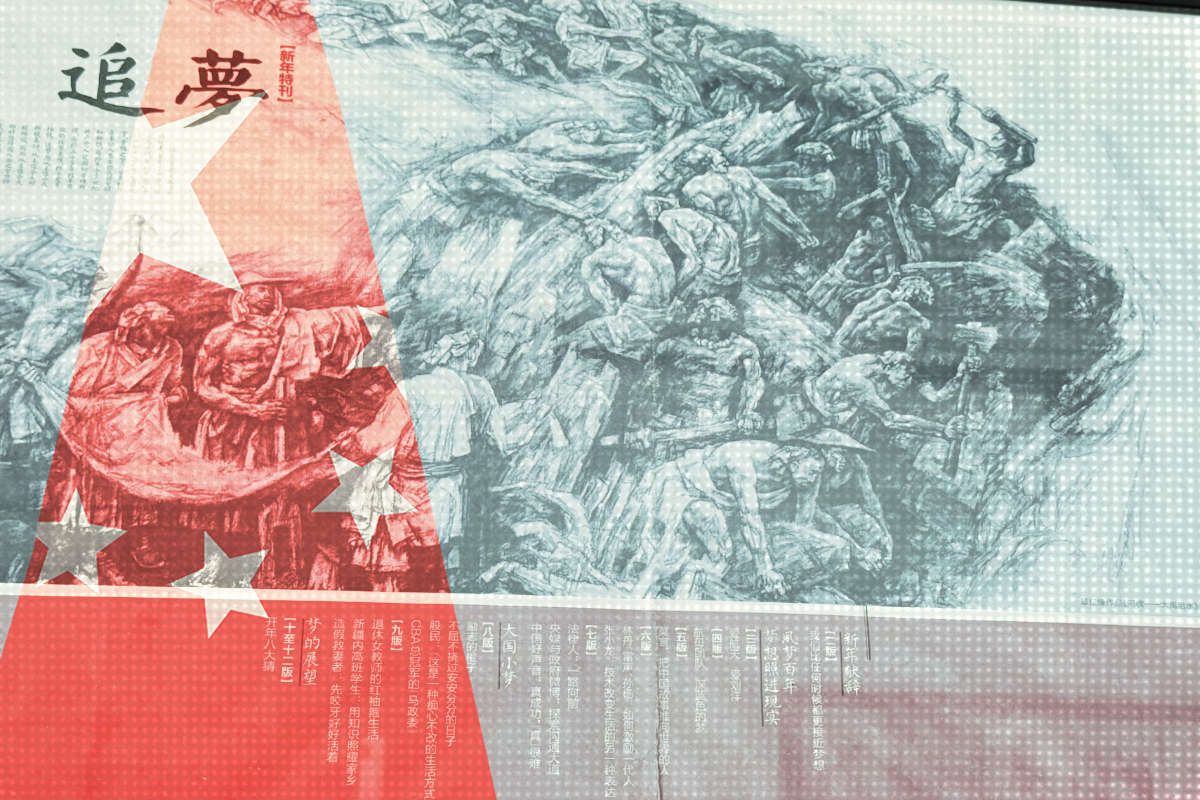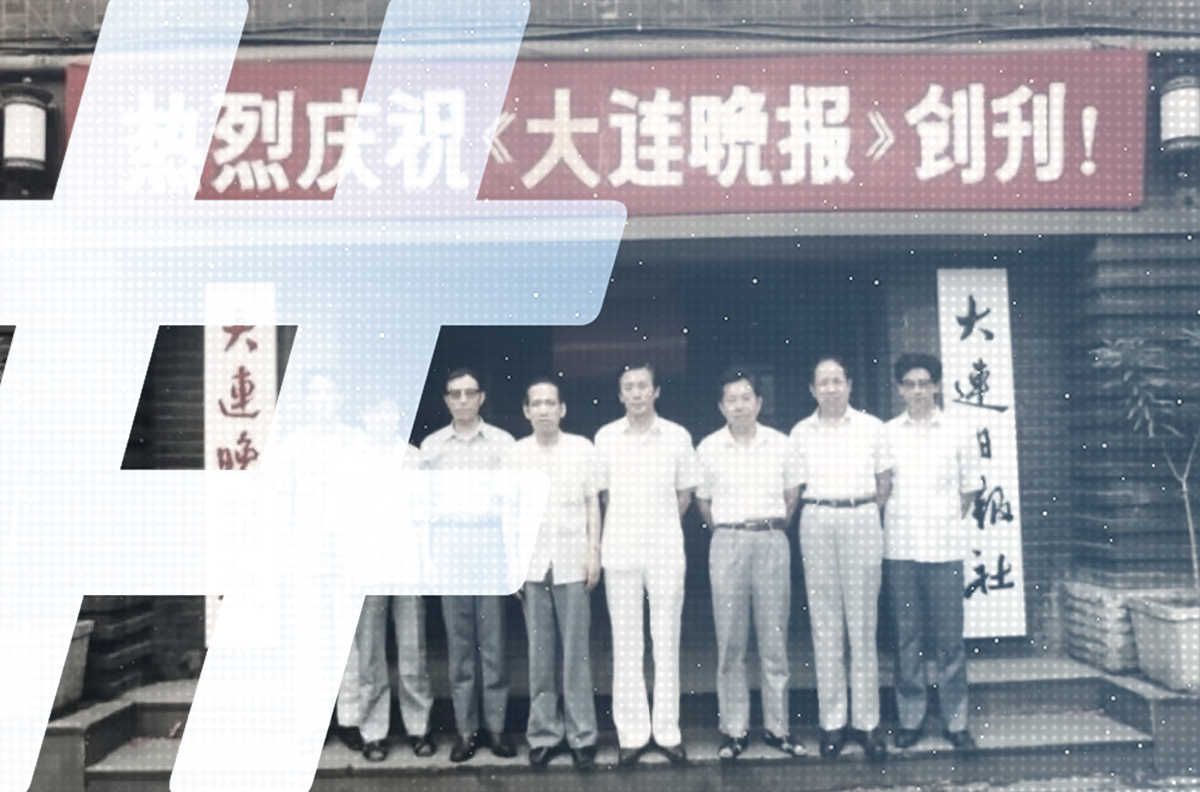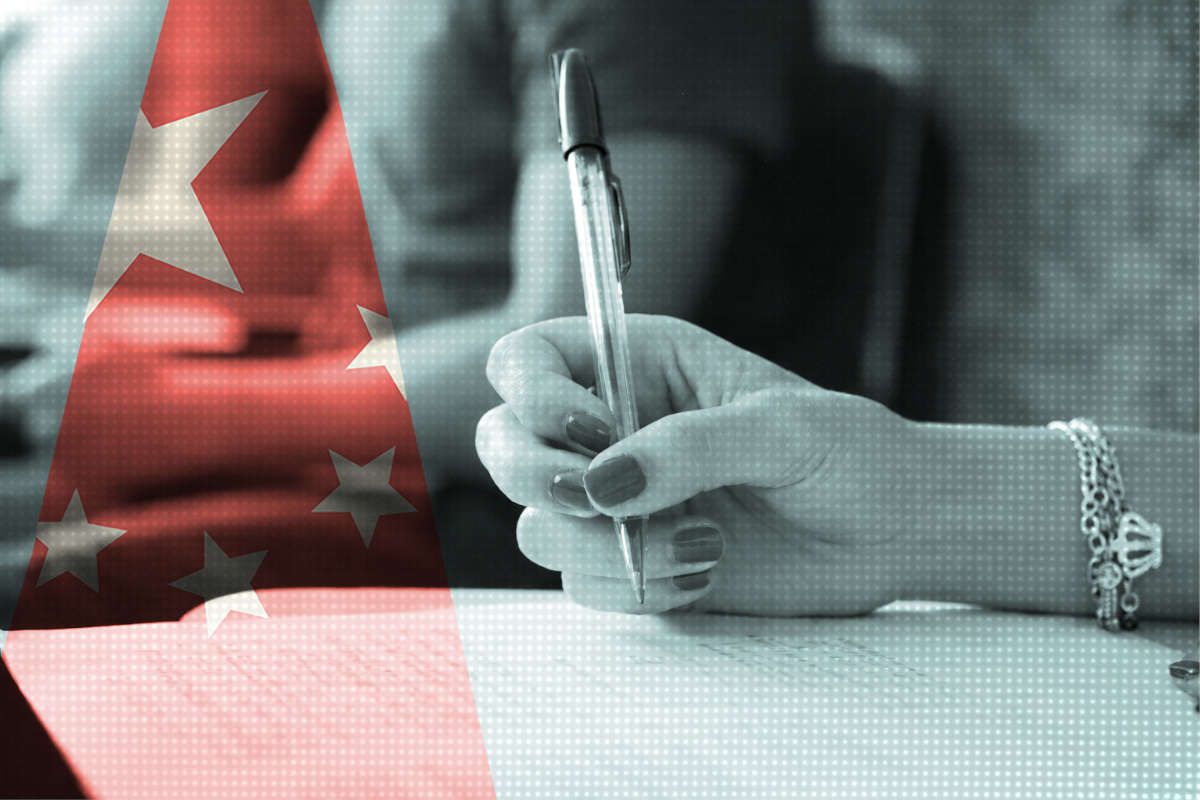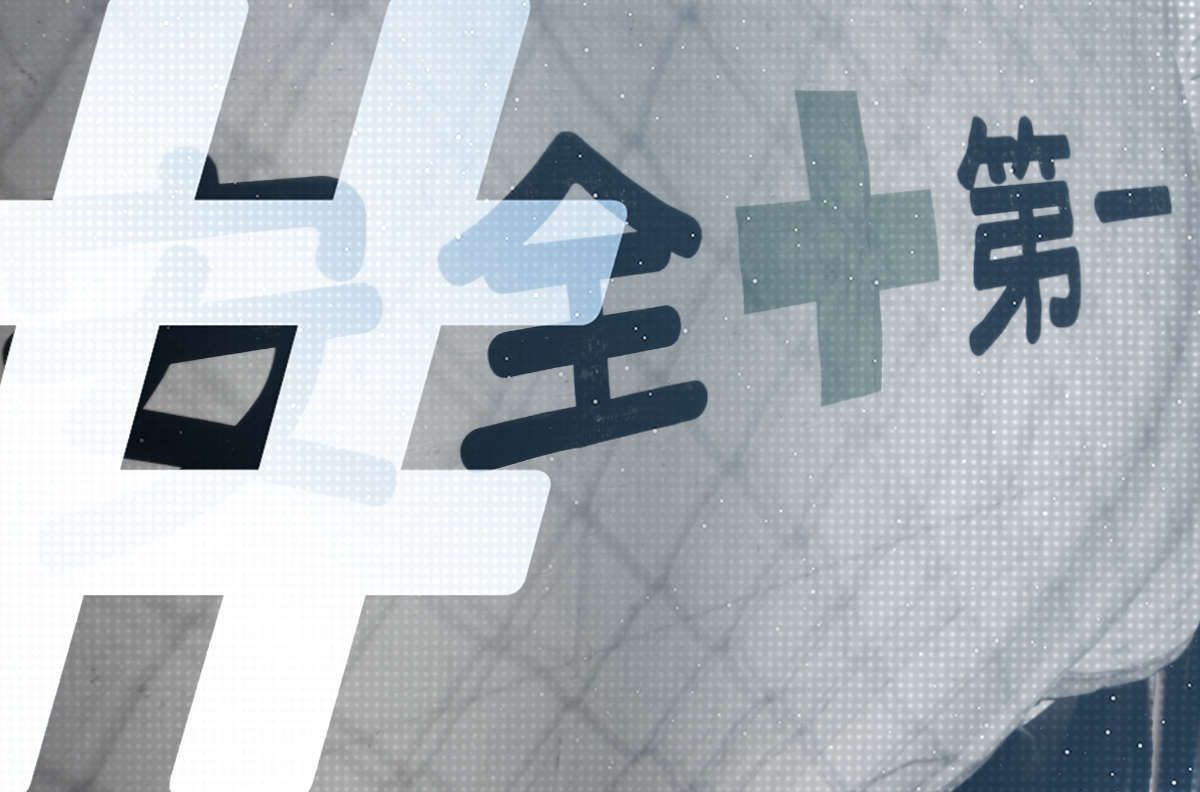Headlines and Hashtags
Editorial criticizes Chinese officials and media for poisoning the Olympic spirit with nationalism
southern-metropolis-daily_march-19_2007.pdf
Much Chinese media coverage of the 2008 Beijing Olympics has focused on national pride and the importance of the games in building up China’s international image. But a recent editorial in Southern Metropolis Daily argues that China’s well-publicized appetite for Olympic gold has become a kind of Midas touch, spoiling the spirit of friendship and harmony that the Games have come to symbolize. [BELOW: March 19 editorial in Southern Metropolis Daily discusses the spirit of the Olympic Games/See also PDF above].
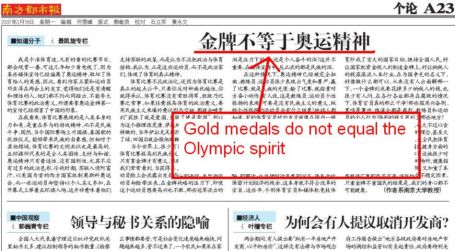
The writer of the Southern Metropolis Daily editorial, Jing Kaixuan (景凯旋), suggests that China needs to remove the taint of central planning from its approach to athletics and focus more on sports as a way of life, also seeking to improve public access to sports facilities and raise the overall fitness of people across the country.
Jing’s comments follow a wave of news about China’s 2008 Olympic hopes, and discussions of where China’s priorities should lie. Coverage has been driven in part over the last week by comments from a representative to the recent NPC meetings in Beijing, who was quoted by Chinese media as saying that “China will win the most medals at the Olympics, or at least the most gold medals.”
The editorial follows in full:
———————-
“Gold medals do not equal the Olympic spirit”
By Jing Kaixuan (景凯旋)
Southern Metropolis Daily
March 19, 2007
I’m a definite sports fan. Any time there’s a decent match to watch, I’m ready to enjoy it. But over these last few years I’ve watched less and less [sports on] television, because the propagandizing by some media has already departed from the Olympic spirit, spoiling the enjoyment to be found in sports. So when I heard the presentations from writer Wang Meng (王蒙) and athlete Deng Yaping (邓亚萍) at the [recent] two meetings [sessions of the NPC and CPPCC] I felt they were clear-headed and rational people. Happening to coincide [in their sentiments], they suggested that the political significance of sports events should not be played up, and that the drumbeating [within China] about being the top medal winner at the [Beijing 2008] Olympic Games has already damaged China’s image.
In my view, sports events manifest the power and beauty of humanity, and their emphasis is on the spirit of the games, not the warring of nationalities. Of course, when national flags are raised and national anthems pipe up at contemporary international sports events, this can come with a bit of patriotic pride. But unlike other areas, sports matches are marked with high degree of common cultural understanding, and the five-circled [Olympic] flag represents the unity, friendship and harmony (和谐) of humankind. The Olympic spirit is about universality, not about national differences, and it should be free particularly of political overtones. During the Cold War, when the Soviet Union invaded Afghanistan, Western nations, led by the United States, boycotted the Moscow Olympics, and yet some athletes competed in their own names, waving the Olympic flag as they participated in the opening ceremony. This did not signal their support for Soviet politics, but rather [their conviction] that sports and politics should not be interlocked. I believe it is athletes like this, and not politicians, who evince the true spirit of athletic games.
Sports competitions should not be politicized also because they represent the most basic idea of equality … If we ratchet up the political significance of sports, and use nationalism to patch up ideological gaps, then this translates into the aberrant idea that “victory is patriotism and defeat is treasonable.” You cannot suppose logic of this kind is a merely fanciful – this was exactly what Saddam Hussein’s son Uday did when the Iraqi soccer team lost international matches, bringing out the whip after [the athletes] returned home.
Very few countries in the contemporary world are like us, taking sports matches and lending to them a kind of grave nationalistic import, so that only the winning of gold medals has importance, and silver and bronze medals are considered defeat. We often see that when foreign athletes win second and third place medals, their faces express their joy, but Chinese athletes by contrast wear looks of discouragement. Under pressure to win gold medals, even if these athletes do feel joy at winning, they do not dare show it. Are the tears shed by these champions tears shed under pressure, or tears shed through personal struggle? This is not the most important thing. In [our] media propagandizing, of course all tears are tears of fervent nationalism.
Under such a climate, the Olympic spirit has already been twisted. [Chinese] coaches and athletes seldom show bearing and dignity. Win a competition and this is the glory of race. Lose a competition and we blame the machinations of the other side. Some people say this is the coaches or athletes making a stink out of personal character. But if they are acting this way just for themselves and not out of nationalistic spirit, then what will the result be? Everyone in the world is clear about this. Some [Chinese] sports officials talk just as overbearingly overseas as they do within China. For example, during an open badminton tournament in Germany recently, a Chinese athlete dropped out of a match due to illness. This caused dissatisfaction in the [tournament’s] executive committee [which wondered about the reason for the withdrawal]. It was a matter that could easily be explained [owing to the player’s illness], but a [Chinese] official blamed the German peoples’ lack of understanding of the game, saying that German’s were jealous of the achievements of the Chinese team. Who would believe such an assertion, saying Germans were jealous over badminton? This could only cause others to believe that you suffered from lack of character.
All of this owes to a “system of unified national struggle” (举国体制) and to “Olympic strategizing” (奥运战略). In today’s market economy, the sports world [in China] still suffers from hangovers from the planned economy, and this is unsuited to the tenets of reform. These last few years, a number of sports officials and media have turned athletic sports into a grand national objective, relying on the support of the whole nation, turning national resources to the manufacture of gold medals, rolling tax revenues into this [sports] industry. In the name of winning glory for the nation, it seems anything can be done. But no one has ever stepped forward to explain exactly how much tax money must be spent for China to win a single gold medal, and seldom do people ask, when corruption exists in every industry — are sports officials really that clean? In all these cases of [athletes] using stimulants and match rigging, do we honestly think it all comes down to the personal foibles of the referees, coaches and athletes? And where has all that money for the sports lottery been applied?
Regardless of how many gold medals China wins in the Olympic Games, this is ultimately less important [for average Chinese] than eating well (大不过以食为天的民生), less meaningful than the idea of a “harmonious world”, and less important than national fitness. In countries with truly strong sports cultures, the people regard athletics as a way of life. But we have invested pathetically little in the health and fitness of our national citizens, and modern athletic equipment is very rarely made available to ordinary people. People generally speaking do not have public areas where they can exercise, and our health and fitness indicators are lower than in other countries. We simply go off to the hospital when we’re sick, and this exacerbates already strong pressures on our healthcare system, contributing to social instability. The upshot of emphasizing gold medals and not focusing on people is that neither our hearts nor our bodies can be sound.
(The author is a professor at Nanjing University)
MORE SOURCES:
“Don’t raise up the China as top gold medal winner theory: Think about it carefully” (Chinese), Qianlong.com, March 16, 2007
“China’s gold medalist Deng calls for Olympics-driven soft power improvement“, Xinhua News Agency, March 12, 2007
[Posted by David Bandurski, March 21, 2007, 2:01pm]


